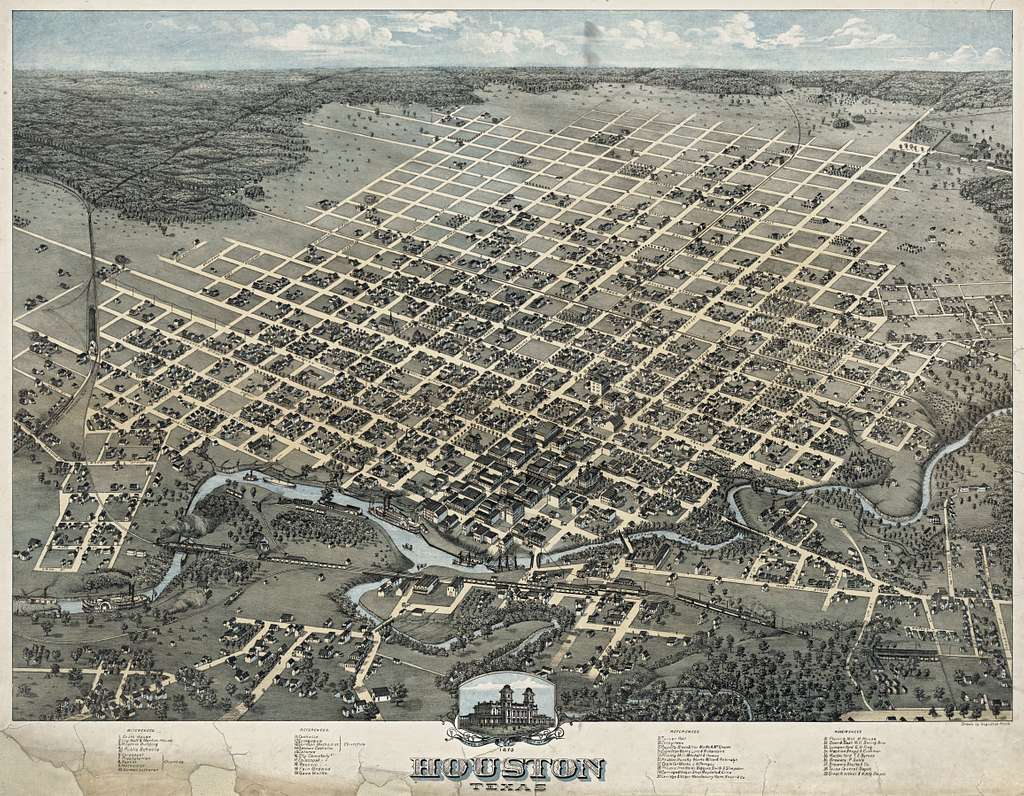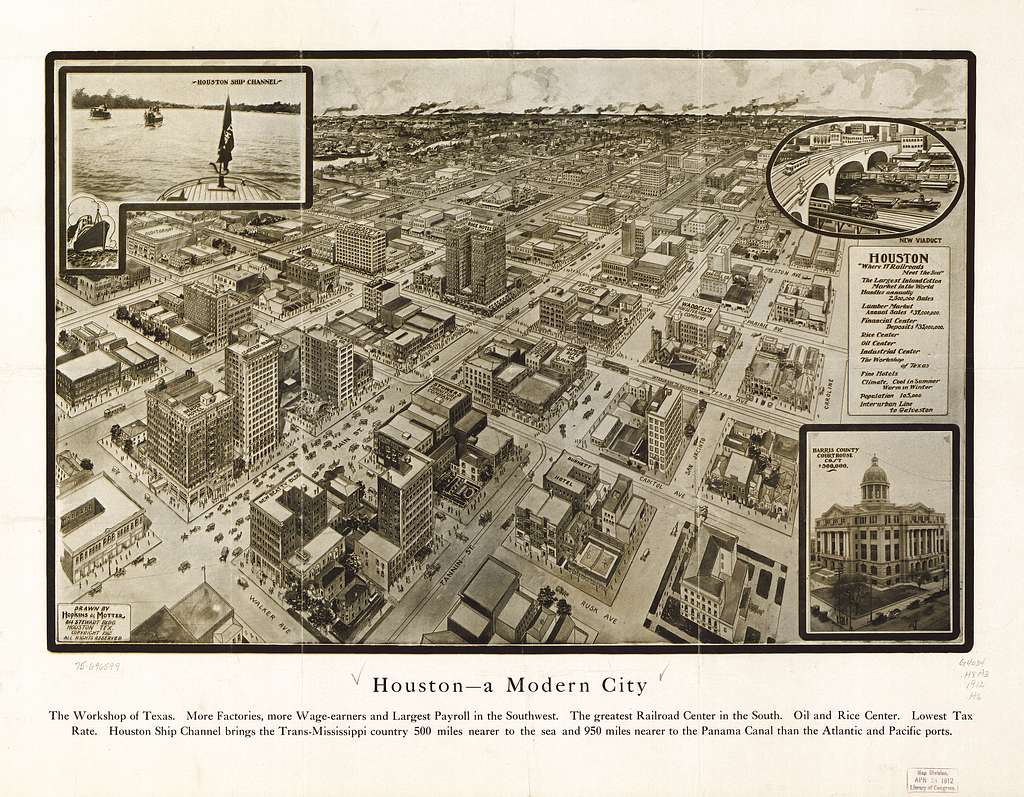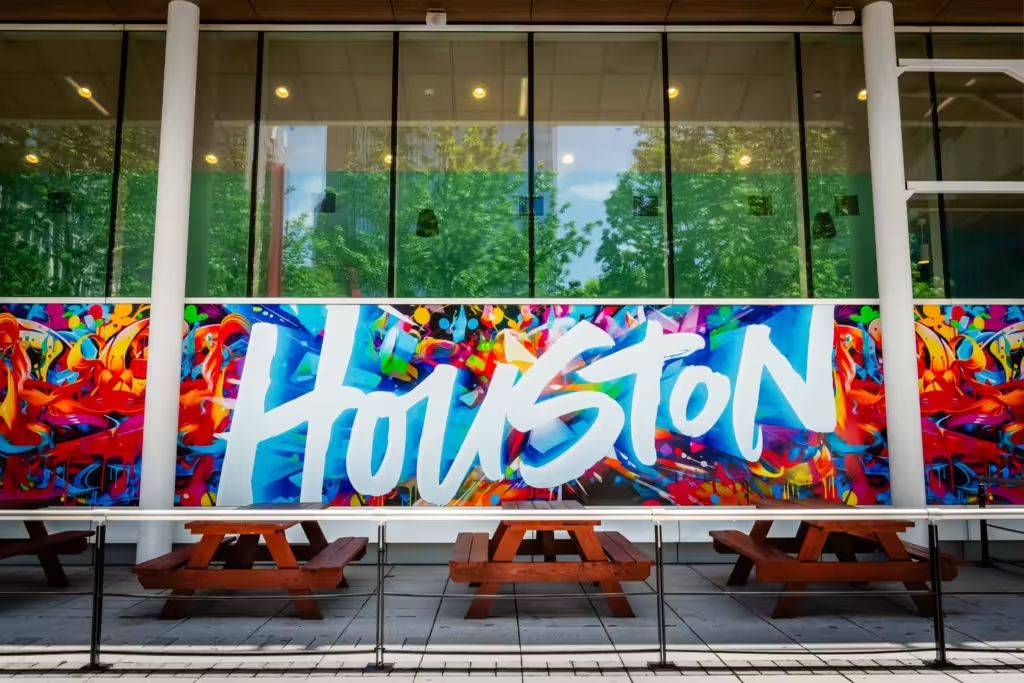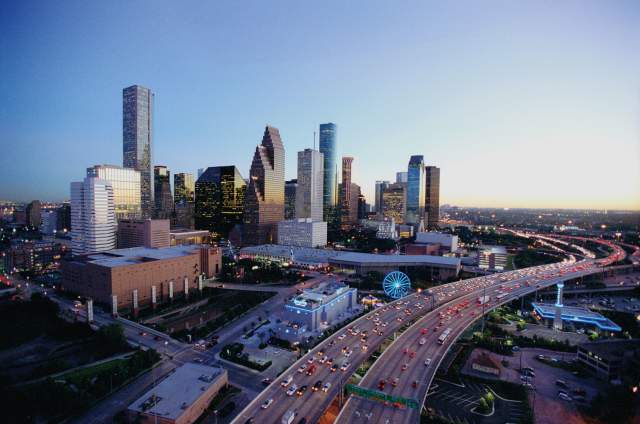Houston, the largest city in Texas and the fourth largest in the United States, is a vibrant metropolis known for its diverse culture, booming economy, and rich history. This article explores the fascinating history of Houston from its early beginnings to its current status as a global city.
Early History: Native Americans and European Explorers
Before European settlers arrived, the Houston area was inhabited by various Native American tribes, including the Karankawa, Akokisa, and Atakapa. These tribes lived off the land, relying on hunting, fishing, and gathering for sustenance.
The first European to explore the region was Spanish explorer Alonso Álvarez de Pineda in 1519, who mapped the Gulf Coast. However, it wasn’t until the early 19th century that the area saw significant European settlement.
Founding of Houston: The Allen Brothers’ Vision
Houston was founded on August 30, 1836, by brothers Augustus Chapman Allen and John Kirby Allen. They purchased 6,642 acres of land along the banks of Buffalo Bayou with the vision of creating a thriving city. Named after General Sam Houston, who had led the Texan Army to victory at the Battle of San Jacinto earlier that year, the city was officially incorporated on June 5, 1837.
The Allen brothers marketed Houston aggressively, promoting its strategic location as a port and trading center. Despite initial challenges such as disease and floods, the city began to grow, attracting settlers and businesses.

Growth in the 19th Century: Railroads and Industry
The arrival of the railroad in the 1850s was a turning point for Houston. The Buffalo Bayou, Brazos, and Colorado Railway, the first railroad in Texas, connected Houston to other parts of the state, spurring economic growth and population expansion.
During the Civil War, Houston served as a logistical center for the Confederate Army. After the war, the city’s economy rebounded quickly, driven by cotton, timber, and railroad industries. The Port of Houston, established in 1870, further cemented the city’s status as a commercial hub.
The Oil Boom: Transforming Houston
The discovery of oil at Spindletop near Beaumont in 1901 had a transformative effect on Houston. The city became a major center for the oil industry, attracting oil companies, refineries, and related businesses. Wealth from the oil boom funded the development of infrastructure, schools, and cultural institutions, laying the foundation for modern Houston.
In 1914, the opening of the Houston Ship Channel made the city a significant inland port, boosting trade and solidifying its position as an industrial powerhouse. The channel’s development was crucial for the petroleum and shipping industries, driving further economic growth.

Mid-20th Century: Space City and Civil Rights
The mid-20th century brought significant changes to Houston. In 1961, NASA established the Manned Spacecraft Center (later renamed the Johnson Space Center) in Houston, earning the city its nickname, “Space City.” The space program attracted engineers, scientists, and technicians, fostering a culture of innovation and technological advancement.
The Civil Rights Movement also had a profound impact on Houston. In the 1960s, local leaders and activists worked to desegregate public facilities and schools. The peaceful desegregation efforts in Houston set a model for other Southern cities.
Late 20th Century: Economic Diversification and Cultural Growth
By the late 20th century, Houston’s economy had diversified beyond oil and gas. The city became a hub for healthcare, with the Texas Medical Center growing into the world’s largest medical complex. The energy sector continued to thrive, but other industries such as aerospace, manufacturing, and biotechnology also flourished.
Houston’s cultural scene blossomed during this period. The city invested in arts and cultural institutions, including the Houston Museum of Fine Arts, the Houston Symphony, and the Houston Ballet. The city’s diverse population contributed to a rich tapestry of cultural events, festivals, and culinary experiences.
Modern Houston: A Global City
Today, Houston is a global city known for its economic vitality, cultural diversity, and innovation. It is home to over 2.3 million people, making it the most populous city in Texas and the fourth largest in the United States. The city’s economy is robust and diverse, with key industries including energy, healthcare, aerospace, and technology.
Houston’s port remains one of the busiest in the world, facilitating international trade and commerce. The city’s skyline is dotted with skyscrapers, reflecting its status as a major financial center.
History of Houston – Challenges and Resilience
Houston has faced its share of challenges, including natural disasters such as hurricanes and flooding. The city’s resilience and spirit of innovation have been evident in its recovery and rebuilding efforts. Initiatives to improve infrastructure, mitigate flooding, and enhance sustainability are ongoing, ensuring Houston’s continued growth and prosperity.
Conclusion
From its humble beginnings as a small settlement along Buffalo Bayou to its current status as a thriving global metropolis, Houston’s history is a testament to the vision, resilience, and determination of its people. The city’s rich heritage, diverse culture, and dynamic economy make it a unique and vibrant place to live, work, and visit. As Houston continues to evolve, it remains a beacon of opportunity and innovation, embodying the pioneering spirit of Texas.
Join us now and earn more from your home!
Are you ready to maximize your home’s potential and boost your income? Join our community of savvy homeowners who are turning their properties into profitable ventures, we provide the tools, resources, and support you need to succeed. Don’t miss out on the chance to make your home work for you—join us today and start earning more tomorrow!






